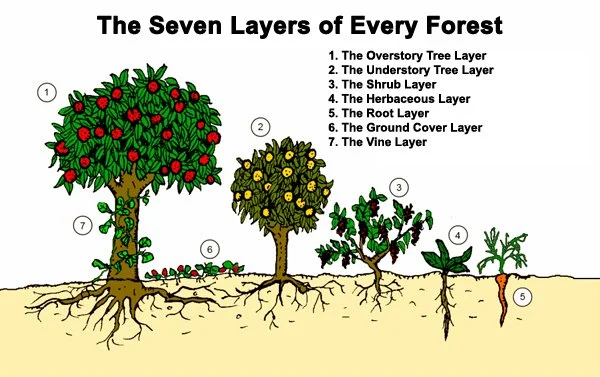Natural Farming: The Ocean Grace Way
In the world of natural and sustainable farming, you'll often hear terms like permaculture, agroforestry, agroecology, regenerative farming, syntropic farming, and Korean natural farming. Though they vary in approach, all these practices share a common goal: modeling our farming systems on the principles of nature. At Ocean Grace Farms, this belief is at the heart of everything we do.
Our journey at Ocean Grace Farms began in 2017 when Marty and his daughter Amanda, who managed the farm at the time, initially adopted conventional practices for growing cacao. A year and a half into the process, the first hundred trees had grown and were ready for their protective hoops to be removed. Industry experts advised them to use chemical drenches to manage pests, specifically the Chinese rose beetle, warning that if they attempted to grow cacao using organic methods—let alone Korean Natural Farming (KNF)—they would lose the entire orchard.
However, as Marty reflected, “This is our home, and when I say that, I’m talking about the planet, I’m talking about our cacao orchard, and I’m talking about our house that’s right up the hill. It’s literally our home. And, this is the air that I want to breathe and that I want my family to breathe, the dirt that I want Olivia and Reno to dig their hands into. So if we lose the orchard, so be it!”
In 2019, recognizing the need for change, Marty and Amanda made a pivotal decision to move away from chemicals and embrace a more natural approach. The transition was not easy. The orchard was attacked by rose beetles, leaving the trees weak and defenseless. Amanda and her husband Mark spent late nights hand-picking rose beetles off the trees. Fortunately, Amanda connected with Logan Silsley, who introduced them to Korean Natural Farming. Logan taught them that the rose beetle damage was a symptom of an unhealthy plant, and that to combat this issue, they needed to focus on building the health of the soil and the ecosystem. By April 2019, they had fully committed to transitioning to KNF, and the trees and the ecosystem gradually regained their vitality.
Five years later, we continue this work, learning from the land, the plants, the soil, and even our youngest farmer, Bodhi, how to inhabit this world and live in harmony with Mother Earth. Our cacao trees thrive in a diverse community of plants, fungi, insects, and birds. Bill Mollison, who coined the term permaculture, described vertical space in an ecosystem as being divided into seven layers, which overlap in an organic way.
Artwork by Graham Burnett from his book “Permaculture A Beginners Guide” – www.spiralseed.co.uk
Our farm reflects this concept:
Overstory: Kukui, madre de cacao, and cedro.
Understory: Cacao trees, mixed with maiʻa (banana), pigeon pea, and māmaki.
Shrub Layer: Tobacco and ashwagandha.
Herbaceous Layer: Lemon balm, peppers, lemongrass, comfrey, calendula, yarrow, borage, and chamomile.
Groundcover: Laukahi (plantain), clover, and perennial peanut.
Root Layer: Cassava and a robust variety of kalo known as Lehua Maoli.
Vine Layer: Butterfly pea and vanilla, to flavor our chocolate, of course.
Walking the road less traveled in natural farming—especially in cacao farming—requires deep commitment to our values. We believe that nature knows best, and we are dedicated to following its lead.
The story of Akinori Kimura, a Japanese apple farmer, comes to mind as I reflect on our journey. Kimura and his wife suffered from sickness caused by the use of chemical fertilizers. Determined to find a solution, Kimura came across shizen nōhō (natural farming). Despite being told that pesticides and chemical fertilizers were essential to grow apples in Japan’s humid climate, he chose to protect his family’s health by rejecting these methods.
Without the use of chemical fertilizers, his apple trees were ravaged by insects and disease for years, and many saw him as a failure. Despair led him to consider taking his own life, but during a walk in the mountains, he saw how the forest thrived without human intervention. Inspired by this natural balance, Kimura returned to his orchard and persevered to try growing naturally without chemicals. His perseverance paid off, as he eventually succeeded in cultivating apples naturally, earning them the nickname "miracle apples."
The lessons from Kimura’s story and the story of Ocean Grace Farms are clear: farming in harmony with nature, respecting its natural order, and humbly recognizing that we are just one part of a vast ecosystem, is the only sustainable path. This philosophy, centered on the health of our families and our environment, is the foundation of all we do. There are no shortcuts, no compromises—this is the Ocean Grace way.

